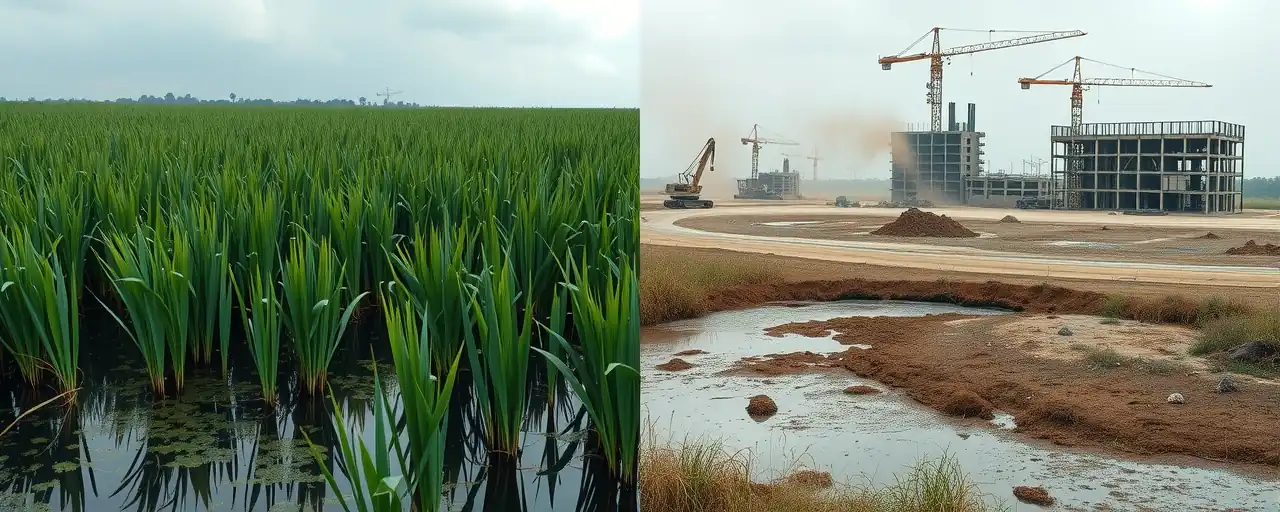A Shiny Tool With a Dark Side
On June 5, 2025, the White House unveiled the Categorical Exclusion Explorer, a digital database designed to streamline environmental reviews under the National Environmental Policy Act. At first glance, it seems like a smart fix: a tool that helps agencies, states, and project sponsors navigate permitting faster. Who doesn't want quicker approvals for roads, renewable energy, or infrastructure? Yet, as someone who values clean water, thriving wildlife, and fair treatment for all communities, I see a dangerous trade-off. This push for speed threatens the very safeguards that protect our planet.
Created by the Trump administration's Permitting Innovation Center, the CE Explorer digitizes categorical exclusions, activities deemed minor enough to skip in-depth NEPA reviews. It promises efficiency and transparency, letting users search and download data to speed up projects. But efficiency for whom? The tool risks prioritizing industry interests over the public's right to a thorough, thoughtful process. When we rush permits, we gamble with our environment and the well-being of those most vulnerable to pollution.
Since 1970, NEPA has ensured federal projects face scrutiny for their impacts on air, water, and communities. It's a law that gives people a voice, demanding agencies consider alternatives and listen to concerns. The CE Explorer, while dressed in modern tech, tilts toward haste. By simplifying access to exclusions, it makes it easier to bypass rigorous analysis. Why are we so eager to fast-track projects when the stakes, our ecosystems and our health, are so high?
The administration calls this progress, citing the May 2025 Permitting Technology Action Plan. They argue it fosters coordination and openness. But the reality feels different. Project sponsors and big developers gain a shortcut, while everyday people, especially in low-income or minority areas, risk having their voices ignored. This decision ultimately determines who gets to shape our shared future.
The Real Risks of Rushing
Evidence highlights the dangers of cutting corners. Environmental justice advocates, supported by over 88,000 public comments in 2025, warn that NEPA rollbacks, like those tied to the CE Explorer, weaken protections. Shortened review timelines limit scrutiny of pollution, habitat destruction, and community impacts. Lawsuits over fast-tracked drilling on public lands already show the fallout, with courts citing inadequate climate impact assessments.
History reinforces these concerns. When NEPA began in 1970, environmental impact statements took over four years. Reforms, from Reagan's task forces to Obama's 2015 One Federal Decision policy, cut that to about two years. But the 2023 Fiscal Responsibility Act and 2025 CEQ rules pushed further, limiting assessments to one year and impact statements to two. Some developers now claim reviews can wrap in six months. That pace doesn't ensure care; it invites mistakes.
The stakes are immense. Streamlined permitting could drive up to 18.7 percent of power sector CO₂ reductions by accelerating clean energy, per recent studies. Yet, without thorough vetting, we risk approving projects that do more harm than good, consider pipelines leaking into rivers or wind farms disrupting ecosystems. The CE Explorer's data may help agencies, but it also gives industry a tool to skirt tough questions.
Advocates for robust NEPA reviews aren't against progress. They want balance. House Democrats, in letters to the EPA, have urged preserving accountability, especially for communities hit hardest by pollution. If we value speed over substance, we betray those who face the consequences of rushed decisions.
A Misguided Push for Efficiency
Defenders of the CE Explorer claim it's essential. They cite 2023 NEPA amendments encouraging categorical exclusions and argue the tool drives innovation. They say it lowers costs, boosts investment, and supports clean energy. But their argument falters. Speeding permits without robust oversight invites reckless projects, hindering thoughtful growth.
Their economic case sounds appealing, delays can stall jobs and infrastructure. Yet, weakening NEPA fails to ensure prosperity; it shifts burdens onto communities and ecosystems. Think tanks like the American Enterprise Institute may praise deregulation, but they overlook the lasting costs of environmental damage. Clean energy deserves support, but not by sacrificing the environment it aims to save. Why trust a system that favors profit over people?
Digital tools, like the EPA's Environmental Data Gateway or updated FOIA policies, show technology can boost transparency. But the CE Explorer feels more like an industry handout than a public service. Its database may seem accessible, but its design prioritizes quick approvals over meaningful engagement.
Demanding a Better Way Forward
We need a system that balances efficiency with accountability. NEPA's power lies in its call for evidence, public input, and careful alternatives. The CE Explorer, despite its tech appeal, undermines that core. We deserve reforms that amplify community voices, not silence them, ones that ensure every project, from solar arrays to highways, passes a tough test of environmental and social impact.
This struggle isn't new. Since the 1980s, right-to-know laws and tools like the EPA's Environmental Justice Screening Tool have empowered advocates to hold agencies accountable. Now, we must push harder. Policymakers should restore strong NEPA rules, extend review timelines, and center environmental justice. Technology can serve the public, but only if it prioritizes people over profits.
Our planet's future is at stake. The CE Explorer may offer speed, but it risks lasting harm. Let's fight for a process that honors our environment, our communities, and our right to be heard. Are we ready to demand progress that doesn't sacrifice our world?
